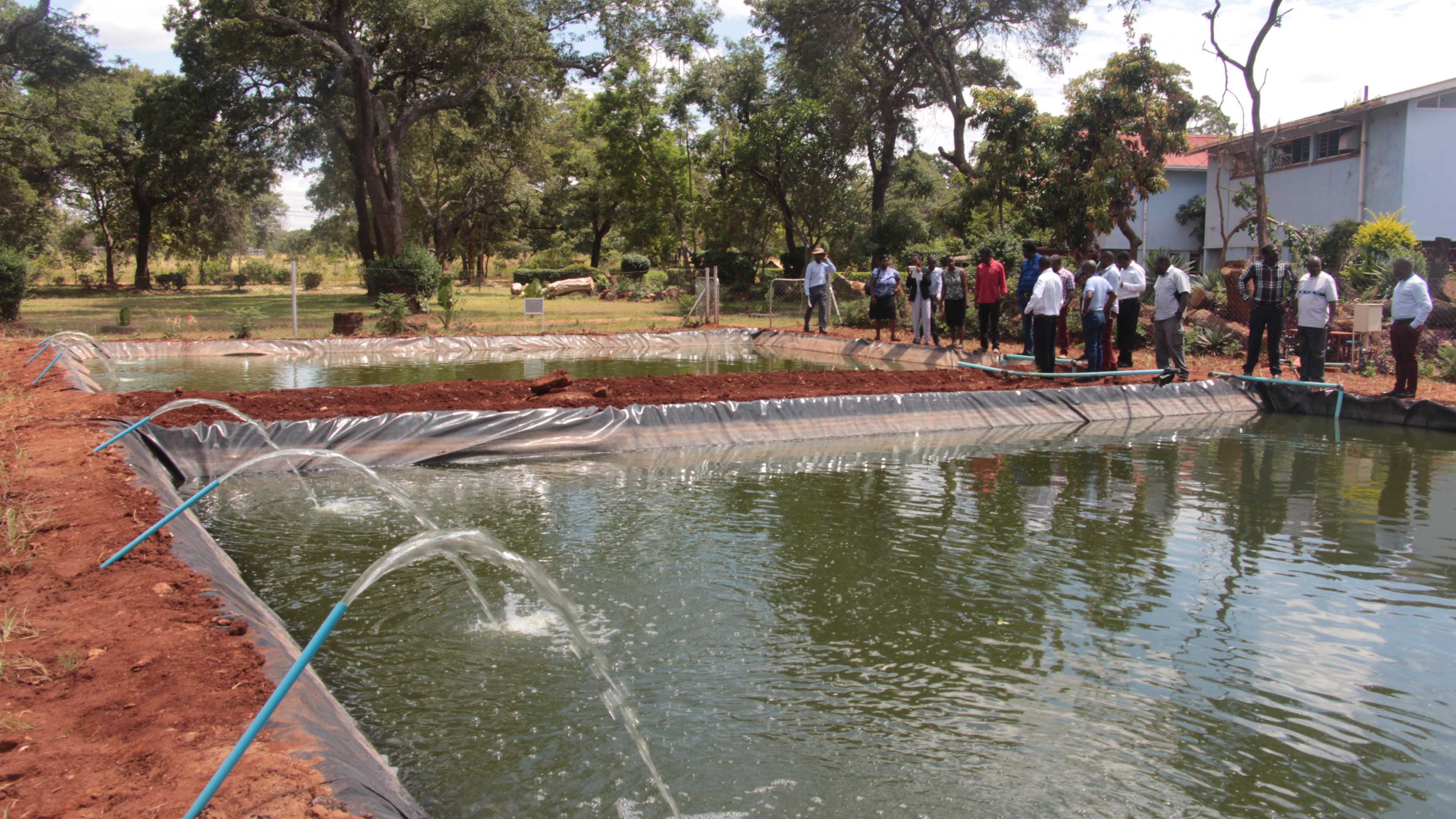
Newly constructed fishponds at Chibero for which Fishfeeds has partnered by providing 3000 fingerlings and feed to establish the fish training enterprise within the Agricultural Centre of Excellence (ACE).
The Zimbabwe Agricultural Knowledge and Innovation Services (ZAKIS) project has fostered the creation of private sector partnerships with the Agricultural Centres of Excellence ACEs at Chibero College of Agriculture (CHACE) and Matopos Research Institute (MACE). These partnerships are to strengthen viability and sustainability opportunities for the facilities.
Anchored on creating viable business models, private sector companies such as FishFeeds a subsidiary of Profeeds; This initiative involves the production and marketing of fish fingerlings and feed for commercial aquaculture. It is in the interest of FishFeeds to see farmers and extension staff trained on fish farming as this will ultimately increase demand for their feeds if production and active producers increase. The agreement between ZAKIS and Fish Feeds is that the Chibero fish ponds will be used for training purposes throughout the project.
At least four training sessions will be organised through the ACE per year and participants will be drawn from the four District Agricultural Centres of Excellence (DACEs). FishFeeds will also invite farmers from other districts that they are working in which they term high potential aquaculture districts, mainly in Manicaland province.
At CHACE, firstly, Chibero Agricultural College will benefit from the availability of a practical and hands on training “tool” in the form of stocked ponds for their students to complement the theory. This will help students to get actual experience of fish farming, from the fingerling to the marketing stage.
Secondly, the college will have the opportunity to generate income from fish sales and achieve some dietary diversity for the students. Thirdly, through the CHACE a strategy is being formulated to commercialise the training with an expectation that participants will pay for certificate awarding courses. This will also add to the income stream for the CHACE.
Fish Feeds have the staff that will conduct training for both extension staff and farmers, but within the districts, the extension staff will then be expected to cascade the information to more farmers.
Based on the farmer needs assessment done to support program design at the ACEs and DACEs 0.7% of farmers interviewed are practicing aquaculture in Chegutu district and 1.8% of farmers in Mhondoro Ngezi district. These districts with DACEs will bring participants to the CHACE training site. At least 680 farming households will benefit directly from this initiative with FishFeeds.
There are other companies that have also taken steps towards similar initiatives through the ACEs and DACEs, these are namely National Foods, Prime Seedco and SuperFert who have to date come on board to collaborate and create synergies with potential benefits for all parties involved.
The business model for most of these partnerships involves provision of key inputs such as genetic material which includes fingerlings, crop hybrids, day old chicks, stock feeds, fertilisers and crop chemicals. This will include the establishment of demonstration plots for an array of crops and pen-fattening of cattle for an off-take market.
The partnerships with the private sector involves the ACEs getting free inputs, as the centres will be used as farmer training and in turn the private sector partners are able to demonstrate their best practice for optimum results as they market their products and immediately establish relationships with the participant farmers and beyond.
The private sector players anticipate that the farmers will be better informed to procure inputs from suppliers they have a relationship with. The institution will further generate income from some of the specialised training fees and the selling of harvested commodities.
Discussions with the Lands, Agriculture, Water, and Rural Resettlement have begun to allow income retention at the ACEs as this will play a key role in strengthening the sustainability prospects for the institutions.
